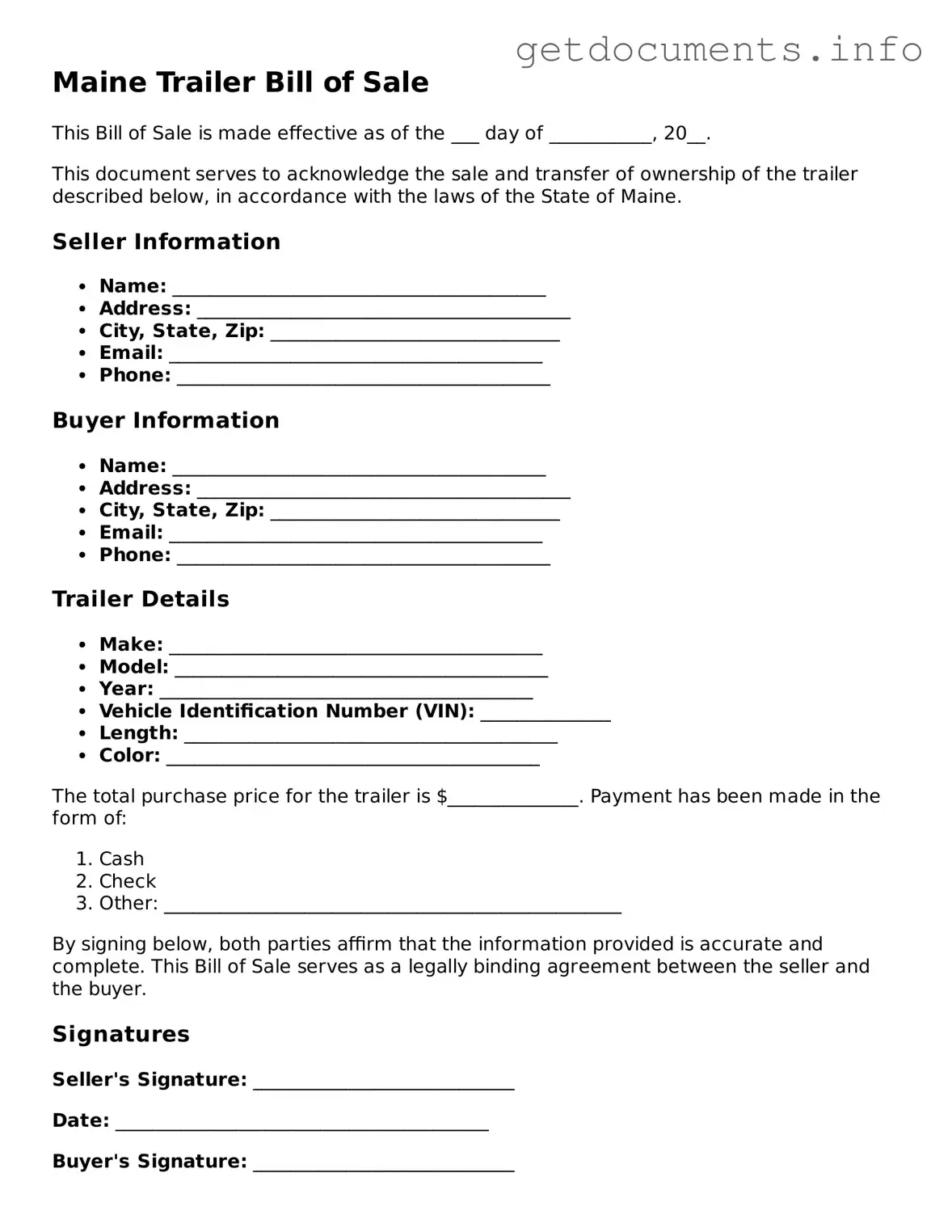Free Trailer Bill of Sale Template for Maine
The Maine Trailer Bill of Sale form is a legal document that records the sale of a trailer from one party to another. This form is essential for transferring ownership and provides important details about the transaction. To ensure a smooth process, consider filling out the form by clicking the button below.
Access Trailer Bill of Sale Editor

Free Trailer Bill of Sale Template for Maine
Access Trailer Bill of Sale Editor
Got places to be? Complete the form fast
Fill out Trailer Bill of Sale online and avoid printing or scanning.
Access Trailer Bill of Sale Editor
or
⇩ PDF File
